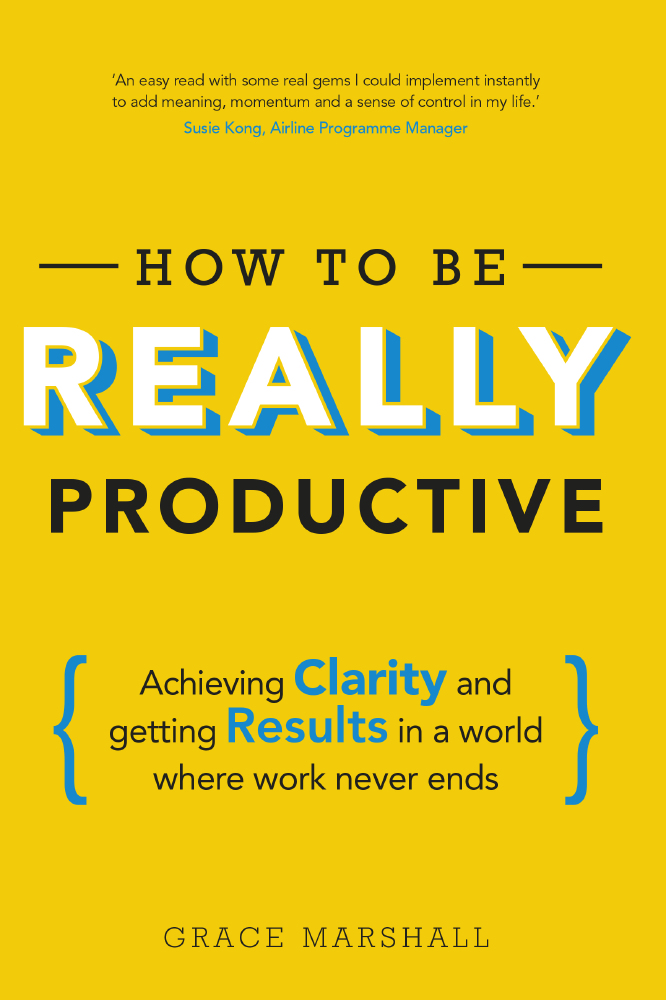All work and no play makes Jack a dull girl. If not dull, then at least frazzled, crazed and exhausted.

Grace Marshall
Let's face it, we live and work in a world where work never ends. There is always more work to be done - more calls we can make, more emails coming in, more meetings to attend, more ideas we can follow up on.
With flexible working and portable technology, work is something we can indeed access anytime, anywhere. Coupled with the fact that our brains can still be at work when our bodies have left the office, it is quite possible to be at work, in some form or another, virtually 24/7.
The problem is, being at work 24/7 doesn't just impact your personal, social and home life. It has a big impact on your work life too.
Studies have shown that working longer hours actually diminishes your productivity, and basic human needs like sleep and health, as well as happiness and wellbeing, all have a direct impact on how well we work.
In short, having a life outside of work is good for you and your work.
So how do you actually switch off, and have a life outside of work? Here are 7 ways to get started:
1. Know when you 're done for the day. When the work never ends, it's up to us to create our own finish lines. To decide when we are done for the day. Whether that's the top 3 things you set out to do, or a set time to leave the office, set a clear finish line and work towards it. Then give yourself full permission to stop.
2. Make a ta-da list. Many of us are so focused on our 'to-do's we forget to acknowledge what we have done. Celebrating progress not only helps to keep your focus and motivation high, it also helps to create that 'job done' feeling of satisfaction at the end of the day.
3. Create a mental commute. Whether your commute is on the train, in the car, by foot or down the stairs, make sure you give your brain the chance to switch between work mode and home mode. Read a book or listen to music on the way home, take a walk around the block or change your clothes when you get in. One senior director I worked with has a 'work tree' in her front garden, that she touches on her way back from work, as a ritual to mentally leave her work there.
4. Leave your work emails alone when you're off work. Yes, some colleagues may have a habit of sending emails in the weekend, or the small hours of the morning, but does it really need an answer straight away - and can you do anything about it anyway at midnight? Worrying about it doesn't get it done, so leave it alone until you're ready to go back to work. It will all be there when you come back. The difference is, you'll be refreshed, recharged and ready to tackle it.
5. Get an old-fashioned alarm clock and charge your phone downstairs. We all know how tempting it is to check 'one last time' when you're supposed to be sleeping, and have 'just a quick peek' when you swipe that alarm off. Save yourself the temptation and let yourself wake up first, before you check in with the rest of the world.
6. Make personal commitments ahead of time. We set goals and objectives at work, have project plans, review targets, make appointments and keep them. That's how we make things happen at work. But often our personal life becomes a bit of an afterthought - something we turn our attention to when we're too tired to think at the end of the day. Make plans, take time out to think, book that massage, holiday or catch up with friends, because if you wait for when you've got nothing else to do, it will never happen.
7. Create a pick-me-up play list. If the thought of scheduling your downtime makes you shudder, then give yourself the freedom to choose what you do. Compile a collection of things you love to do - or would love to do - from big things like trekking the Great Wall of China to little things like a walk in the park, a cup of cocoa by the fire on a cold night, or calling your best friend for a natter. The key to this is to compile the list when your creative brain is still working. Then when you come home from work, or take your next annual leave, you can pick and choose something that actually recharges you instead of defaulting to standby mode, waiting for when it's time to go back to work.
Next time you find the itch to check your work emails on a Sunday morning, or tinker with that unfinished report that's calling from your laptop, remember this: recharging is not a luxury, it is fuel for your productivity. At the end of the day, the most productive thing you can do is to stop, switch off and have a life outside of work.
About the author
Grace Marshall is the author of How to be REALLY productive: achieving clarity and getting results in a world where work never ends and the Amazon bestselling 21 Ways to Manage the Stuff That Sucks Up Your Time.

She is also a Productivity Ninja with Think Productive one of the world's leading productivity training companies.
She specialises in helping busy time jugglers find ways of getting things done with less stress, less overwhelm, more fun, enjoyment and fulfilment, and does her own juggling with two children and her own coaching business at Grace-Marshall.com
How To Be REALLY Productive by Grace Marshall (Pearson) is out now in paperback, priced at £12.99. For more information visit www.howtobereallyproductive.com.

